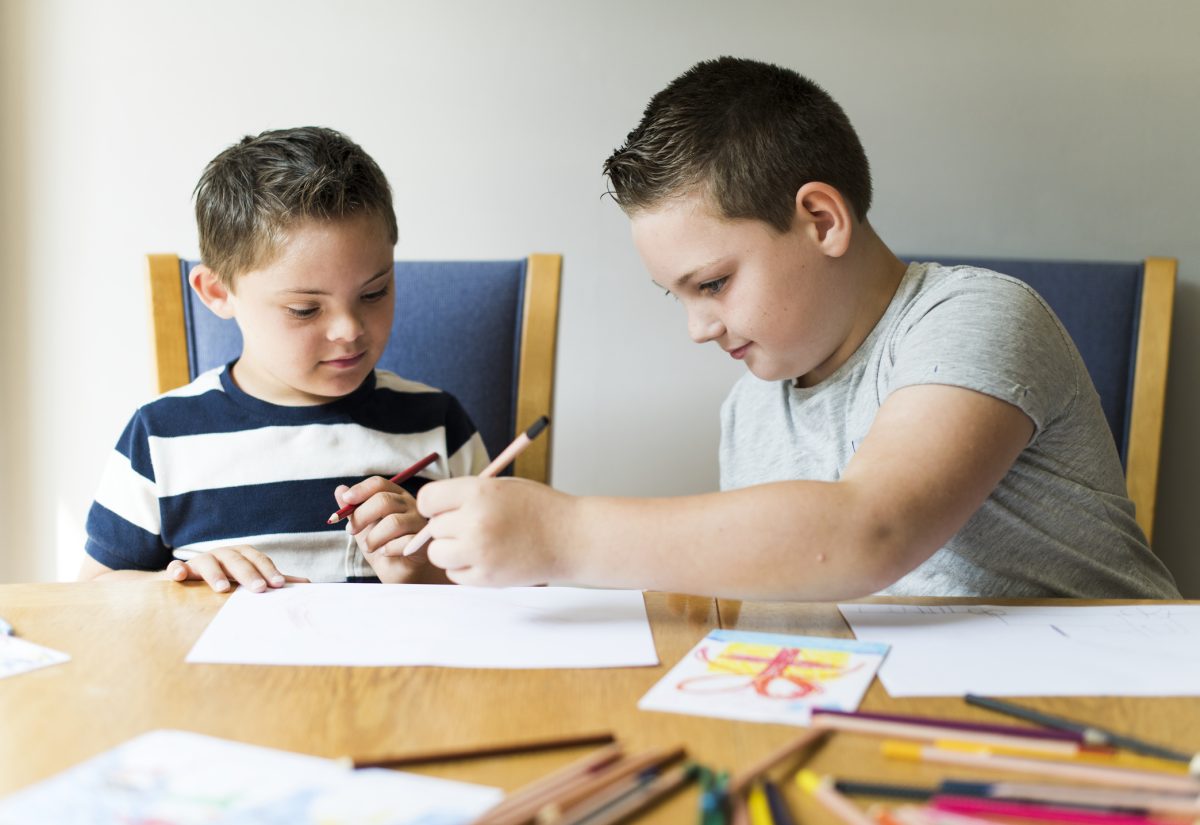8 tips for supporting siblings

Having a child with a disability affects the whole family dynamic. Including (and perhaps especially) their siblings.
While siblings can play a key role in the life of a child with a disability (they can often be the best teachers and therapy assistants out there!) we also need to recognise the impact our new path might have on them.
Luckily, there are plenty of things we can do to ensure everyone feels supported and has their needs met.
Carve out special time out with each sibling
It’s important to put some quality time aside with each sibling wherever possible. This can look different for each child.
One of our parents, who has 3 children, started a “girls’ day out” with her oldest, where she regularly takes time to do something special with her. It can be great for the sibling, but we as parents can also really enjoy this time too.
Where you can, take the time to make sure a sibling attends social activities outside the fam. Things like birthday parties, playdates, and activities they love, like dancing or piano.
Be transparent, talk about the disability and normalise it
When talking to siblings, we prefer to be honest and transparent about disability. Make sure things are explained and introduced in age-appropriate ways.
It’s also really important to talk about the great things that make our child with a disability different and special! Normalising and celebrating differences is such a wonderful thing in any family.
Take time to build the bond
A beautiful bond can be fostered between siblings. Pointing out the love a child with a disability has towards the sibling can help foster this.
For instance, saying things like “Your sister/brother loves you so much” or “See how she/he follows you around everywhere and can’t get enough of you?!” can help build a bond.
Respect individual needs
It’s important to recognise that ALL children are different and special. Living with disability or not, children each have very distinct individual personalities, different relationships, and different needs.
One parent spoke about her oldest becoming more independent and wanting more time away to play with his friends (common in many sibling relationships without a disability in the family). Her youngest, in contrast, is a nurturer so always wants to help. Respecting these different needs is key.
Some issues are not always disability specific issues
It’s also important to remember that the issues present in all sibling relationships will also play out in our families. All siblings will have things that irk them, as well as things they love about each other.
The relationship between siblings will also constantly change and grow, as all relationships naturally do.
Hear them out
It may seem sometimes that there are different rules for each sibling, and rules may need to be adjusted as children progress.
One parent highlights that siblings really need to understand when and why their sibling with a disability isn’t held to the same standards of behaviour as they may be. At the same time, it’s important to listen and address what IS fair and makes every sibling feel valued and heard.
The relationship will go through changes and phases
Real talk. Some older siblings have shared honestly, that when they were growing up, having a sibling with a disability was not always something they embraced. Some felt resentful at times.
But when they were older, they came to appreciate their sibling more and more. So, if you are going through a tough time with a sibling, take hope that as they grow things can (and probably will!) change for the better.
Join a Sibling Group
Sibling groups can be very worthwhile. As we experience as adults, there is something special about connecting with someone who says, ‘I know what it is like’. Siblings Australia have great workshops for siblings of children with a disability.
Remember, the greatest present you can give any children is your presence! Share your time and your connection and make them feel valued. That’s what parents are for, after all!